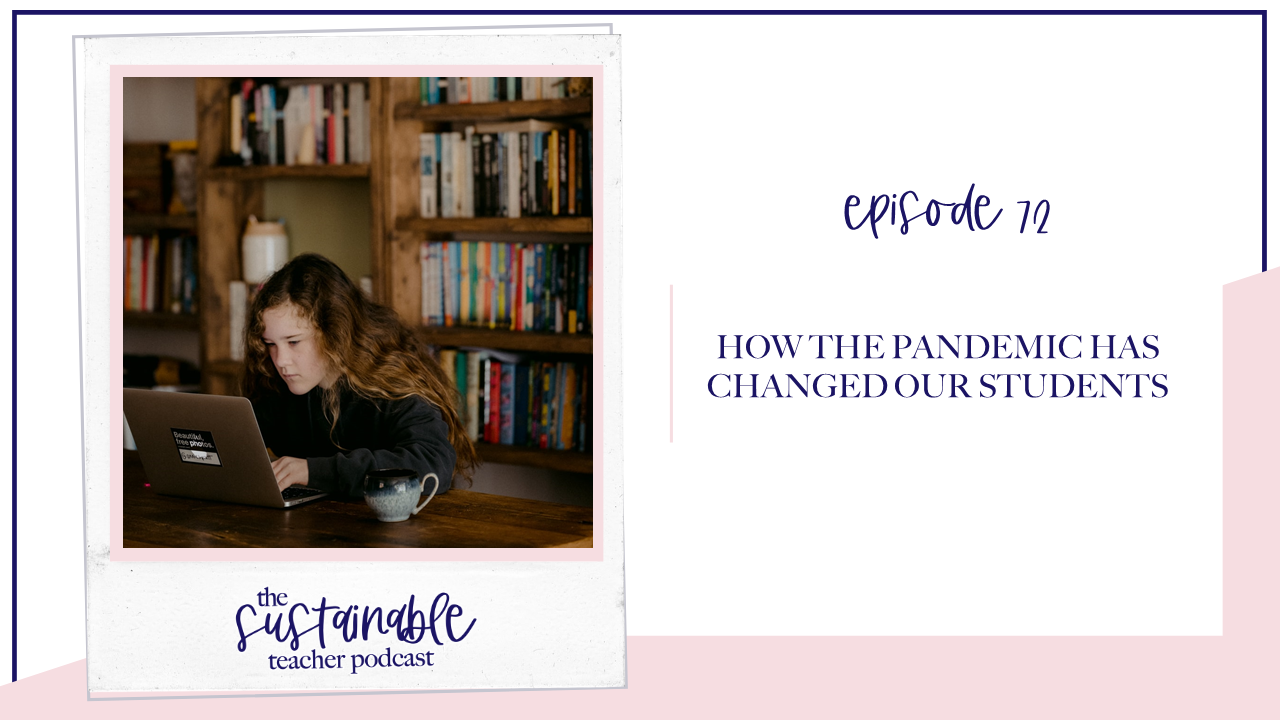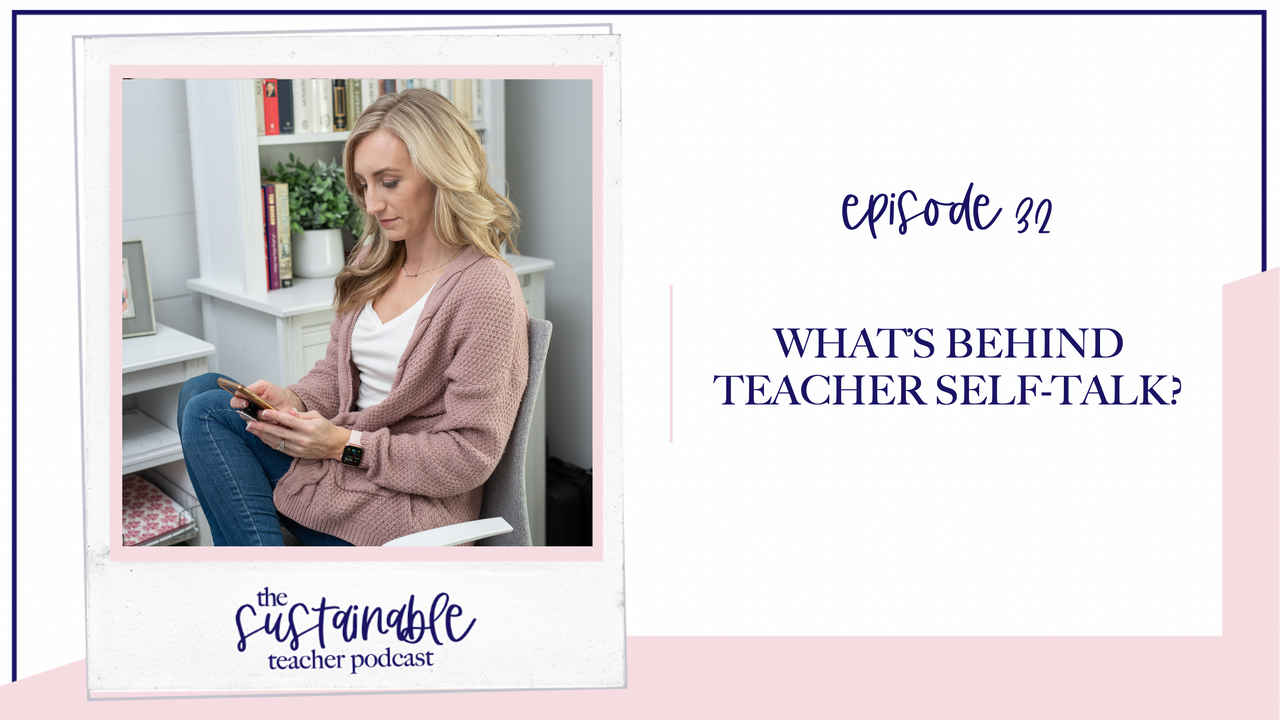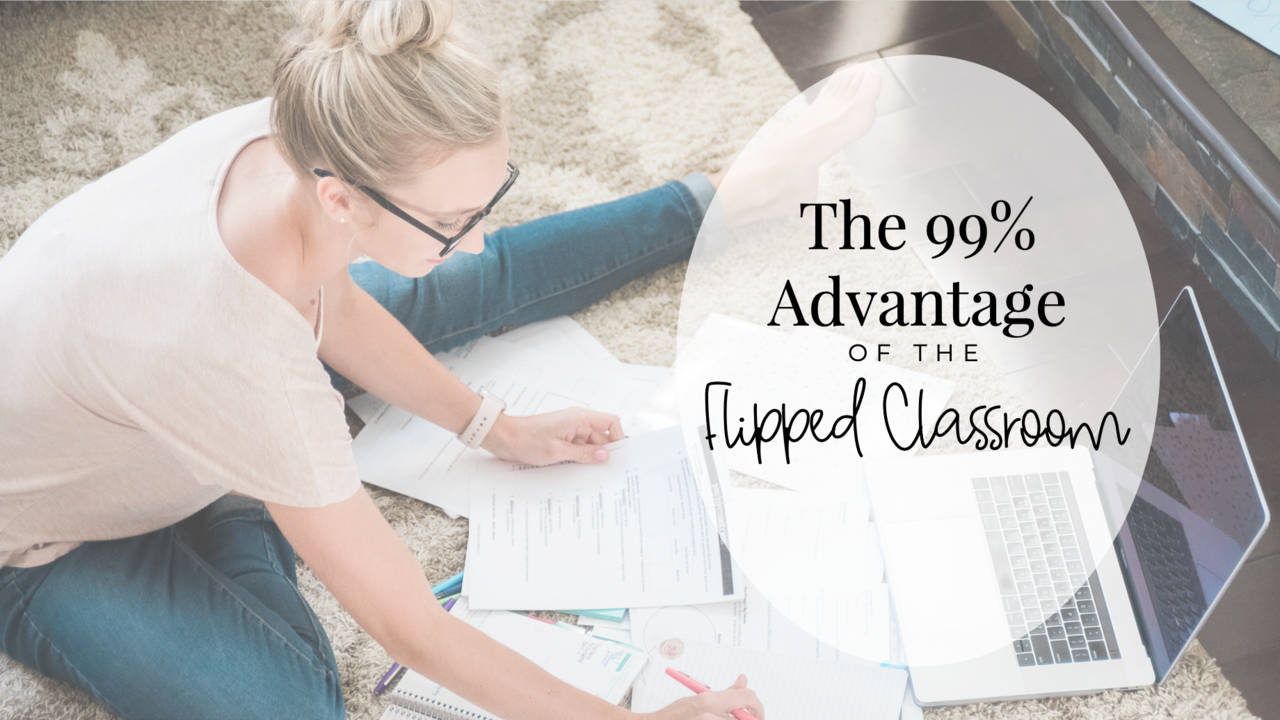How the Pandemic has Changed Our Students and How Teachers Can Respond

The pandemic took all the routines and understandings about school, shook them up in a paper bag, and spit them out with no semblance of what they once were.
At least that’s how some of our students are now behaving.
With student apathy and absences on the rise as expectations and stakes for students and teachers remain the same, we are working through trying times in education.
Education is different. Our students are different. And if we don’t respond to how our students have changed, we will not be as effective with them in our classrooms.
We must change with our students but in a way that does not sacrifice our evenings and weekends to do so. I’m all for changing with the times and responding to the ever changing needs of our students, but I believe it is absolutely contradictory to the system’s success if we do so at the sacrifice of our teachers’ well being. And requiring that they do it all without support will lead to the end of education as a whole because teachers w...
Make the Most of Class Time So You Can Leave on Time

Quick question for you… when you were in college as a pre-service teacher, making your preparations to become a teacher, taking all your education classes, did you ever take a class on how to lecture?
Me neither.
Another question, when you were assigned to make plans for an entire unit, like a curriculum map for a unit in one of those college classes, did you plan to lecture in class 80%+ of the time and say that out loud to your class?
Yeah, me neither.
That’s because as a pre-service teacher you were being trained on how to best help your students through the learning process, you spent thousands of dollars on your education to become the expert on the learning process, and now that you are actively in the classroom, let’s face it… you’re an overpaid lecturer if that’s all you do.
Oh man. I may have just ticked off a lot of people, but let me explain real fast.
I don’t believe lecturing is bad. Seriously, I don’t. Some of the best teachers I ever had were artists at lecturin...
Top 5 Attributes of My Classroom Culture

Welcome back to the Sustainable Teacher blog episode 56, the Top 5 Attributes of a Sustainable Classroom Culture, and here’s the very first thing I want to say.
I think there should be an entire college course on classroom culture. I don’t say that about many things. I teach Intro to Educational Technology, and I think a course on classroom culture should come first. And here’s why… because it’s one of the top, if not THE top factor that will determine your sustainability and impact in your career.
It’s this awesome mix of knowing what you believe as an educator and making sure you always act from that space, helping you to recognize that your impact is greater than any mastered standard or test score.
So, I’ve got five of them for you today, and they each of a message of sorts that you could be sending to your students. And they are a part of a sustainable classroom culture because they compromise the messages, systems, beliefs and actions of your classroom that determine how...
What’s Behind Teacher Self Talk?

I was doing a Facebook Live not too long ago, and at the end as I was trying to convey to teachers watching that I too am a teacher, working for myself now, reaching out to teachers with my message of teacher sustainability, and I caught myself saying “I’m just a teacher.” And although I meant it in an endearing, relatable way, it still didn’t sit well with me that the word “just” wanted to creep in there.
Adding the word “just” means I’m nothing more than, or I could’ve done more with my life, but instead I’m “just” a teacher.
Have you ever caught yourself saying this or something like this? Maybe in a circle of friends who aren’t teachers?
Or how about this common saying, “Those who can, do. Those who can’t, teach.”
Now, that’s just a saying, but it’s one we’ve all heard, and I’m sure had aimed at us in some way before even if it was in a joking manner. But I bet it wasn’t laughable.
In many ways I think teachers have assumed these beliefs about teachers, and almost absor...
3 Summer Must-Dos for a Sustainable Teacher & Parent

Hello there and welcome to the Sustainable Teacher Podcast, where we chat once a week about all things keeping our lives manageable so that we can do the things we love longer, particularly teaching. In this episode, I’m going to take a little break from the normal teacher-specific talk, and focus more on another important aspect of our lives, and that is our homes. More specifically, I’ll be getting a little personal and sharing some specific things that I’ve been working on lately in my home and personal life to reach for a bit more sustainability. And I hope you find them valuable.
After listening to this episode you’ll know three ways that I’m making our homelife a bit more manageable, so that you are inspired to reflect on and possibly implement any of the strategies as you strive for more sustainability in all aspects of your life.
Let’s get to it.

Summer Bucket list
As we are quickly approaching summer, I don’t know about you guys, but I’m getting a little overwhelmed...
Are You Tired of Low Student Engagement?

Who would have known almost a year ago that we would all have experienced such a monumental change in our lives that showed us just how important and effective having students in the classroom with us is for student engagement. Who would’ve known?
Somewhere in the middle of my second year of teaching, I vividly remember a moment when I realized, it’s got to get better quickly - meaning, I’ve got to stop engaging more and working harder than my students when it comes to understanding the content. I’m not the one taking the test and I care a whole lot more than they do. Side bar - of you course you do, you’re the teacher in the room, but feeling exhausted at the end of the day because of all your hard work just to have black screens or non-engaged students is not what’s going to keep you going in this career field.
No matter how long you’ve been teaching, this year and your experiences with distance learning have probably left you feeling the same way. “Students have got to eng...
The "99% Advantage" of the Flipped Classroom

In a time of distance learning where teachers are flying by the seat of their pants, and essentially building the plane while in the air when it comes to teaching online, we all are feeling the effects of working our butts off and yet not having the same impact we did when in the classroom.
Except for flipped classroom teachers.
Teachers who had previously flipped their classrooms, in many ways were prepared for a unpredictable setting like this one, as well as their students, because of how the flipped classroom functions.
Please hear me when I say that I am not trying to throw flipped teachers' success during distance learning in the face of teachers who had not previously flipped. NOT AT ALL. I'm not here to shame or guilt anyone (see my posts on these topics here and here).
But I do want to use those teachers who had flipped before the pandemic-induced school closures as a story of success when it comes to building accessible and sustainable classrooms. And there's a HUGE re...


